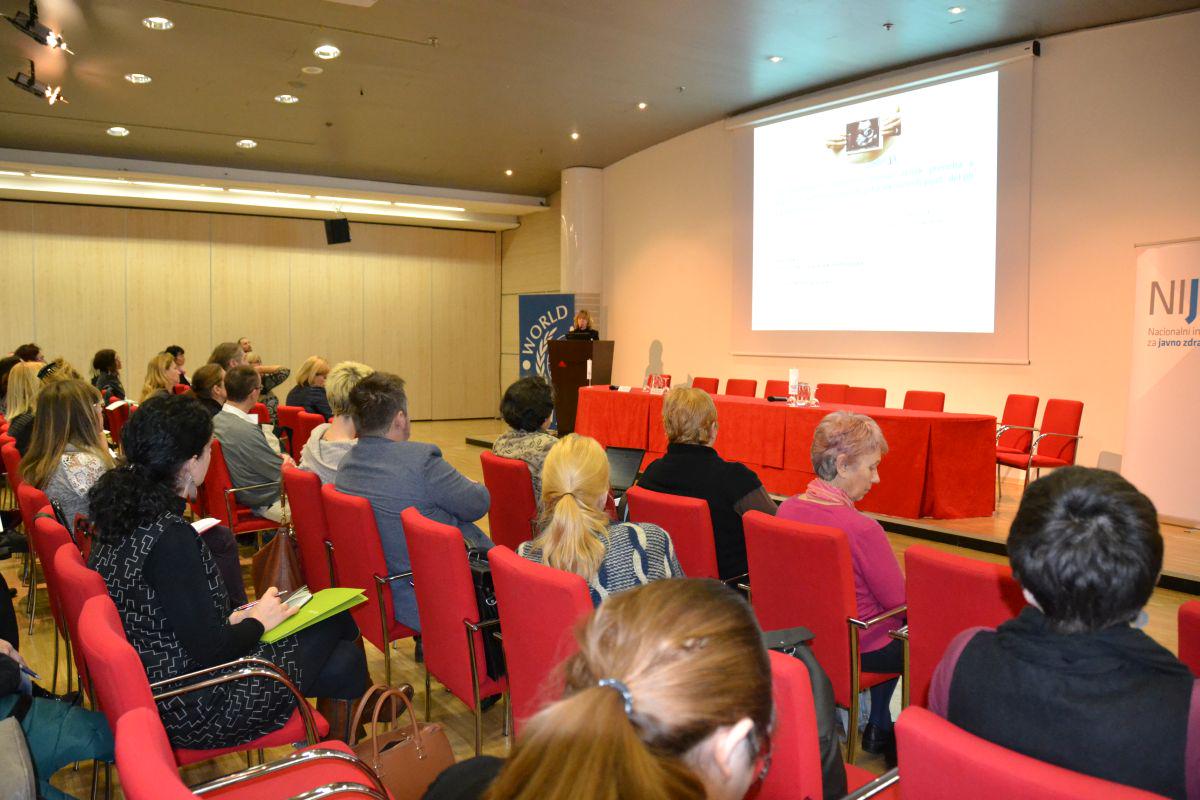

It is already known that all beverages containing alcohol are harmful for the embryo. That was emphasized by Marjetka Hovnik Keršmanc, from the National Institute of Public Health, at the 3rd Conference on Alcohol Policies. "We don't know whether there is a safe threshold for drinking alcohol during pregnancy. That is why we will always advocate that a safe amount of alcohol during pregnancy, or while planning to become pregnant, does not exist."
Mrs. Hovnik Keršmanc stressed that experts wish to raise the awareness about the negative effects alcohol has. Figures say that the amount of alcohol consumed by younger age groups, especially between the ages of 25 and 34, is on the rise. "On the other hand we also know that this age group gives birth the most. The average age of pregnant women having their first babies is 29. It is also true that many women stop drinking when they get pregnant. However all of them don't stop," Hovnik Keršmanc explains the figures. Some of the reasons why young women drink is because they don't know that they're pregnant, some of them are not even aware of the potential harmful consequences prenatal drinking can have, and others drink in order to cope with stress. Even more alarming is the fact that many women think that consuming small amounts of alcohol during pregnancy is not harmful. On the contrary, it is.
Alcohol harmfully affects a woman's health as well as her motherhood. Consuming alcohol can disturb the development of the sex cells, which can then lead to reduced fertility. In addition it can also increase the risk of miscarriage in the first three months. The alcohol a woman consumes also reaches the embryo through the placenta and reaches concentrations at the same level or even higher than in the mother's blood. "The key organ which processes the alcohol is the liver. And as the embryo's capability to process the alcohol is much smaller than the mother's, the alcohol remains present in the embryo for a longer time. With that the possibilities for the alcohol to cause harm to the child's organism increase. It can also lead to long-term health problems," stressed Hovnik Keršmanc.
Alcohol threatens the growth and development of a child during pregnancy
Alcohol influences the development of many organs, which otherwise develop in different time stages. The consequences on the fetus are different depending on when the alcohol affects the organism as a toxin. The consequences can be functional, structural, or a combination of both. Alcohol can be very harmful to the brains, which develop during the whole nine months of pregnancy. "The consequences of consuming alcohol during pregnancy can be having a miscarriage, stillbirth or premature birth. Alcohol can also lead to a fetal alcohol spectrum disorder, better known under the abbreviation of FASD," says Hovnik Keršmanc.
FASD is a common term for health problems caused by the mother's consumption of alcohol during pregnancy: from small behavioral difficulties to the most sever condition – the fetal alcohol syndrome (FAS). Typical for the latter is growth deficiency, which can occur during pregnancy or later. Children with the syndrome have typical facial anomalies, central nervous system abnormalities and difficulties in developing speech. The syndrome can also lead to heart, liver and kidney problems, as well as other disorders.
Gynecologists have the opportunity to make their patients more aware of the harmful effects alcohol can have at the very first check-up or as contraception counselors. "It would be ideal to warn about these effects at the pre-pregnancy meeting, however we know that half the women become pregnant unexpectedly," says gynecologist Sava Rant Hafner. She also added the eternal problem of doctors: too little time for thorough medical examinations.
She did point out the uniform labeling of foods and drinks, which contain alcohol, as one of the more achievable ways of raising awareness about the harmful effects of alcohol. That method is already known in some countries abroad. She also mentioned the introduction of a questionnaire on the consumption of alcohol in the maternity booklet as a highly recommended measure. The same would apply for smoking.


































































